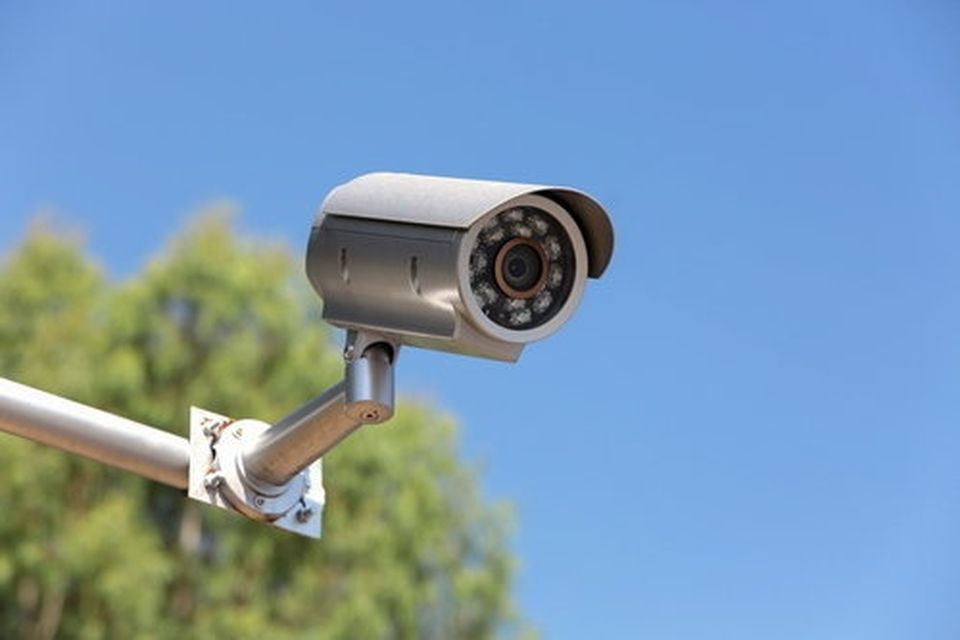Wexford councillors told CCTV must warn illegal dumpers before catching them
Solar powered CCTV could be used in Louth to counteract illegal dumping
Under new legislature Wexford County Council (WCC) will soon have the ability to capture fly-tippers in the act via CCTV cameras. However, any potential culprits will be forewarned courtesy of signs informing them CCTV cameras are operational in the area.
The effectiveness of this system was questioned by Councillor Paddy Kavanagh at the June meeting of the Gorey Kilmuckridge Municipal District (GKMD).
“We might as well put up Big Ben and start ringing it to tell people there’s a camera in the area,” he noted.
Environmental engineer Enda Brennan explained that, under the 2018 Data Protection Act, you had to follow certain procedures when placing CCTV cameras in public.
“It’ll be like the speed vans, you put up two signs informing people there are cameras in this location,” he said.
“This is favouring the person breaking the rules and regulations, we might as well not do anything,” replied Cllr Kavanagh. “They’ll just move elsewhere. We’re making life easy for them.”
He received the support of Cllr Darragh McDonald who urged Mr Brennan to “name and shame” anyone found guilty of illegal dumping.
“Those names should be published. Is it legal for us to name them?” he asked. “We know if there’s a reporter in the court they can publish it in the paper, but we surely have a list of successful prosecutions? Can we have a record of this on the council website? So that it’s there for everyone to see.
“This is an epidemic, people are dumping everywhere.”
Cllr Mary Farrell answered the question on Mr Brennan’s behalf.
“We were told previously that the only person who can report on fines issued in court is the court reporter. But if people are out there destroying our countryside we should be able to name and shame them,” she said.
While naming offenders was one thing, Cllr Anthony Donohue said shaming them would be a far greater challenge.
“You can’t shame them because they don’t have any shame,” he said.
Read more
All the councillors were having issues with the protocols and procedures involved in erecting these cameras.
“There are cameras up on buildings in every town and village in the county,” said Cllr Oliver Walsh. “There’s nothing being done about them, but we can’t put up a camera to record someone dumping.”
“Can dashcam footage be used to prosecute fly-tipping if you happen to come across someone doing it?” asked Cllr Pip Breen.
Again, Cllr Farrell provided the answer.
“You have to be prepared to go to court and that’s what’s stopping people, they don’t want to appear,” she said.
Prior to becoming district manager of the GKMD, Philip Knight had worked in the council’s environmental section and he said everything changed in the wake of the enactment of the Data Protection Act.
“We had been using CCTV and it had been very successful when I was in the environment section (prior to 2018) and we were taking a lot of cases to court based on CCTV evidence,” he said. ”Provision is going to be given to us to use mobile CCTV units rather than fixed, but if someone is determined to dump waste they will find somewhere to do it.
"It’s very frustrating, when we started sending crews to go through the rubbish in 14 per cent of the cases they found something which could be used in court, that has now dropped to less than one per cent.”
All of those present had been sent images of illegal dumping during their time as elected representatives, however, it was down to the council staff to respond to those reports; an unenviable task by all accounts.
“I wouldn’t like their job to have to pick it up, to go through it trying to find a name,” said Cllr Kavanagh, “it’s stomach churning even having to go near it.”
Willing to get the ball rolling on identifying potential criminals, Cllr McDonald said houses “without bins” were arguably the best place to start.
Funded by the Local Democracy Scheme












